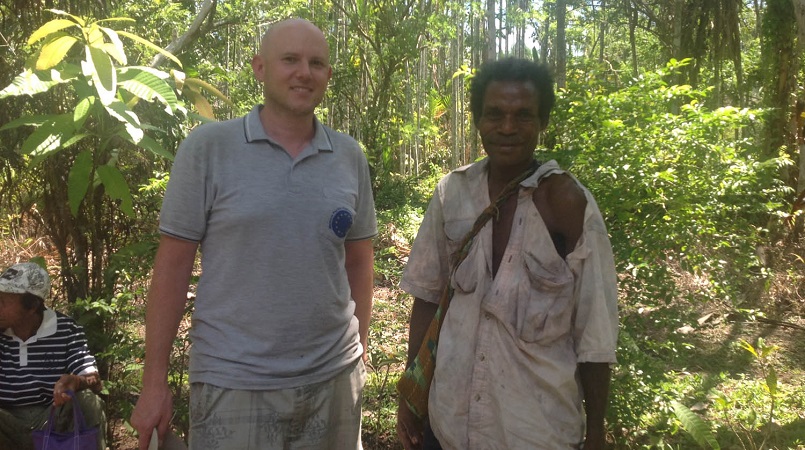
Communities facing a shortage of safe drinking water can use simple filtering techniques to purify any available and unsafe water for drinking, says Dominik Ruffies, a water management expert from Austria in Europe.
One of them is the biosand filtering process, which can filter and cleanse pathogen-contaminated water, making it safe for drinking.
Ruffies said this yesterday following a positive outcome of a pilot project in the Derin area of Gogol in Madang.
Derin is a dry lowland area and with the current El Nino drought, access to safe drinking water is a major challenge. The lack of rain over several months meant low soil moisture resulting in withering of food gardens and drying up of water sources.
However through a European Union funded project, Ruffies and NARI scientists have worked with selected communities on the water harvesting and purification mechanisms.
Work in Derin has proven successful with some 20 households already enjoying clean and pathogen free water obtained through biosand filters.
Ruffies said they established water wells and tanks as well in Derinso so that the community can easily collect, store and utilise water. But during dry seasons, when all available water is dried up, Ruffies said people can purify any available and unsafe water as all disease borne organisms are purified and cleansed by the biosand filter.
The process is cost-effective and simple, and involves pouring of contaminated water into a column of sand and gravel layers. As water penetrates the layers, dirt and pathogens are trapped among the sands.
The pathogens eventually die out when they cannot get away; or when there isn’t enough food or air for them to survive; or when the population vanishes when they eat each other.
Community members openly expressed appreciation and thanked NARI that the technology is working for them.
Community leader Lauben Ordei said the process introduced by NARI has made life easier for the households as they cannot continue to look for water in the bushes. Ordei said the purified water is safe and those who have accepted the technology are enjoying it without any complaint so far.
Speaking on behalf of the women folk, Alis Opam said their concern about health and hygiene during water shortage had been addressed.
The Derin community has been filtering any unsafe water for drinking and domestic use – like the left-overs from dried up creeks.
